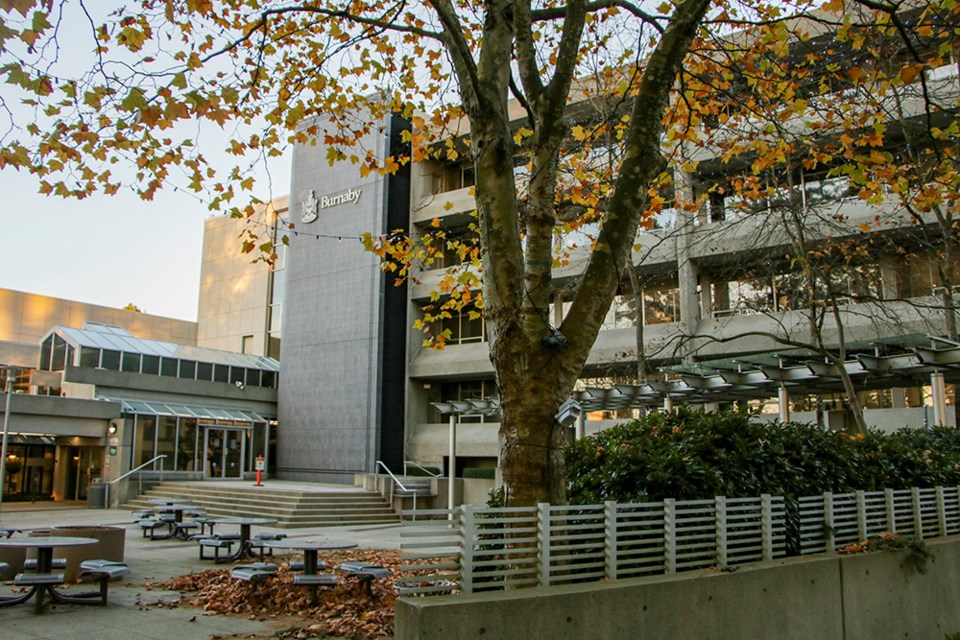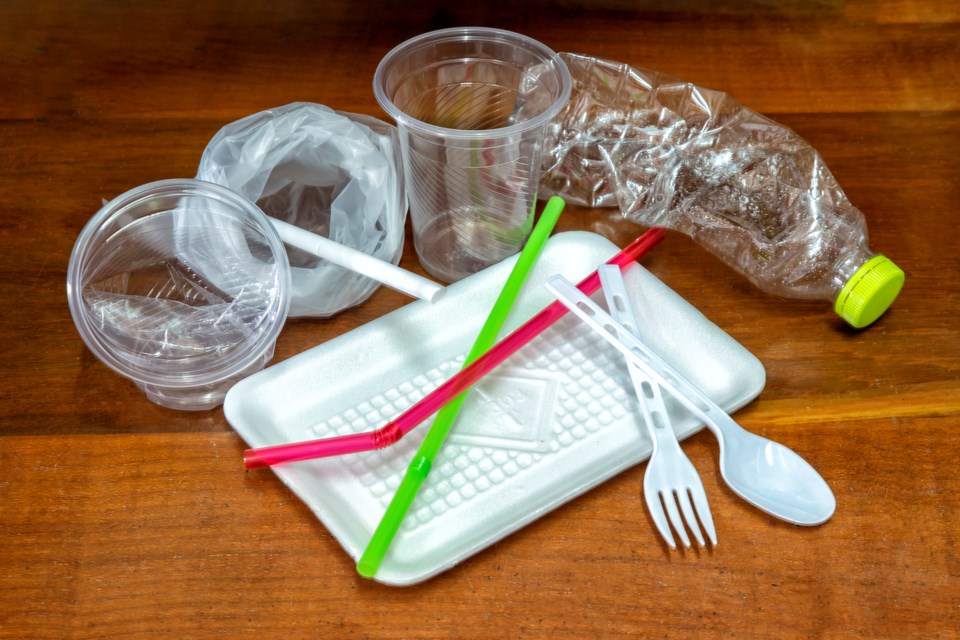The City of Burnaby will push forward in its efforts to eliminate – or at least significantly reduce – single-use plastics at city facilities as it considers a potential city-wide ban.
Coun. Joe Keithley, chair of the city’s environment committee, presented a report calling for the city to continue eliminating and reducing single-use plastics at city-owned facilities.
According to the environment committee’s report, the city began working to reduce waste in 2013, including implementing separated food scraps collection.
As part of the food scraps program, the city’s food services shifted to using recyclable and compostable food items at civic facilities. For instance, the city swapped wooden cutlery for plastic utensils.
The city still has paper-based straws available upon request, according to the committee report, but plastic straws have been phased out, while paper bags have been put in use instead of plastic bags.
Still, there are some areas where single-use plastics have not yet been phased out. The use of plastic beer cups at outdoor events is being reviewed, with staff considering cans instead of kegs and cups, and there’s nothing firmly in place to replace plastic for pre-packaged meals.
The biggest issue, however, has been with the use of biodegradable dog poop bags, the environmental benefits of which are described by the committee as “debatable.”

“Biodegradable plastics do not decompose through standard composting operations and are therefore not accepted at the region’s green waste processing facilities,” the committee report notes.
In fact, biodegradable plastics are similar to other plastics, but they break down faster because they’ve been treated with chemicals, according to the committee report.
“Research suggests this may actually lead to an increase in the amount of small plastic particles in the environment,” the committee added.
Further, the committee noted that people are more likely to toss used biodegradable poop bags in places other than the garbage, believing them to be safer for the environment.
According to the committee report, a report on a city-wide ban is expected, but Keithley said the future of that remains unclear for a couple of reasons.
The first is a successful lawsuit against the City of Victoria, in which the B.C. Court of Appeal found a bylaw banning single-use plastic bags from grocery stores was unlawful because environmental protections are provincial jurisdiction.
Keithley also noted a forthcoming report from Metro Vancouver on this very topic next month.
“Rather than every 23 districts of Metro have 23 different (bylaws), let’s all do one together,” Keithley said.
He also acknowledged the lack of viable alternatives to plastic straws for people with disabilities – plastic straws are flexible, durable and don’t get too hot when used to drink coffee or other hot drinks.
“I think you would have to have (plastic straws) available. That would be crazy to take that away from somebody who needs it,” Keithley said, adding the emphasis should be on not offering plastic straws by default.
Keithley added the city should also be working to reduce disposable plastic water bottles by offering watering stations for people to refill reusable bottles.



